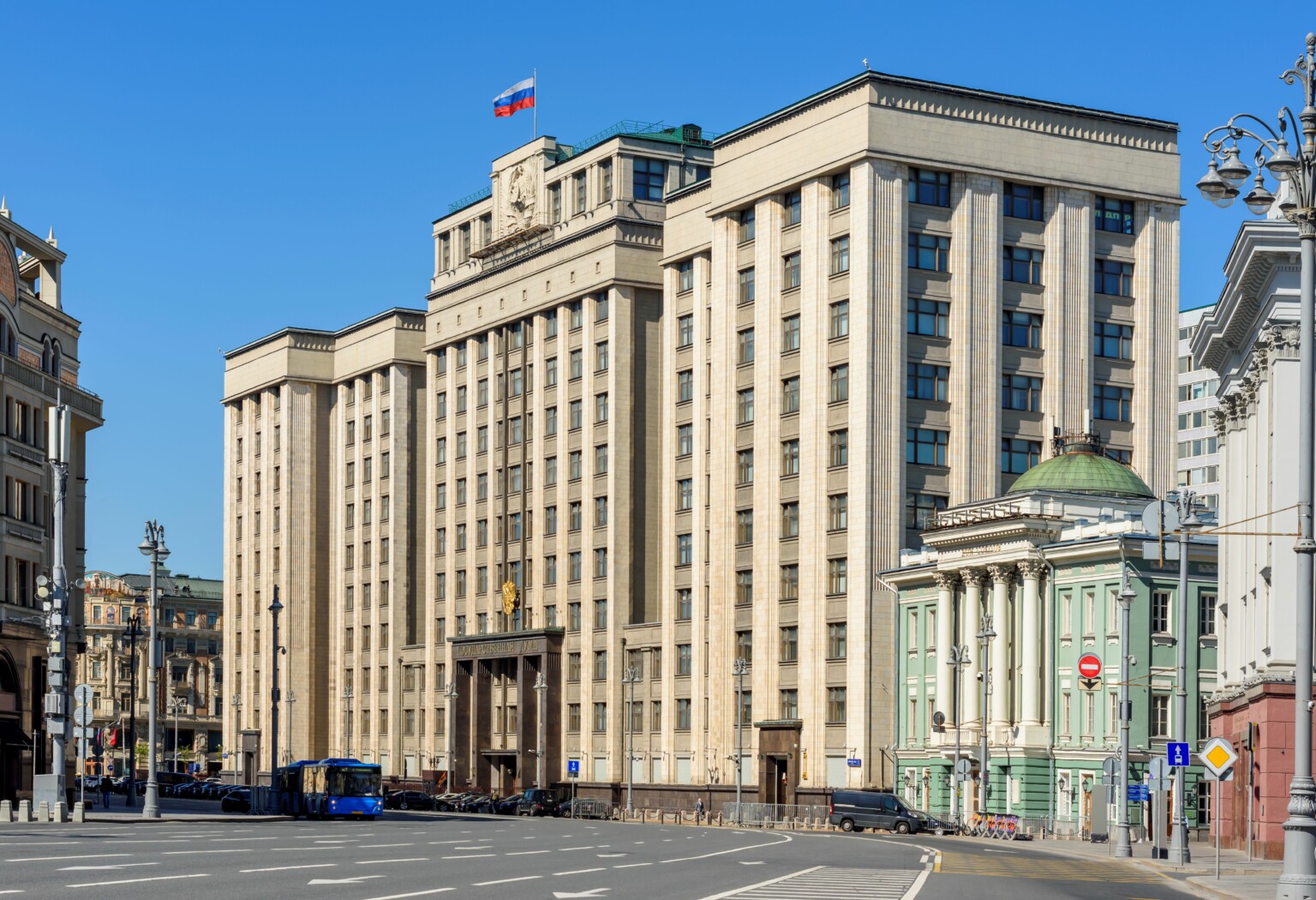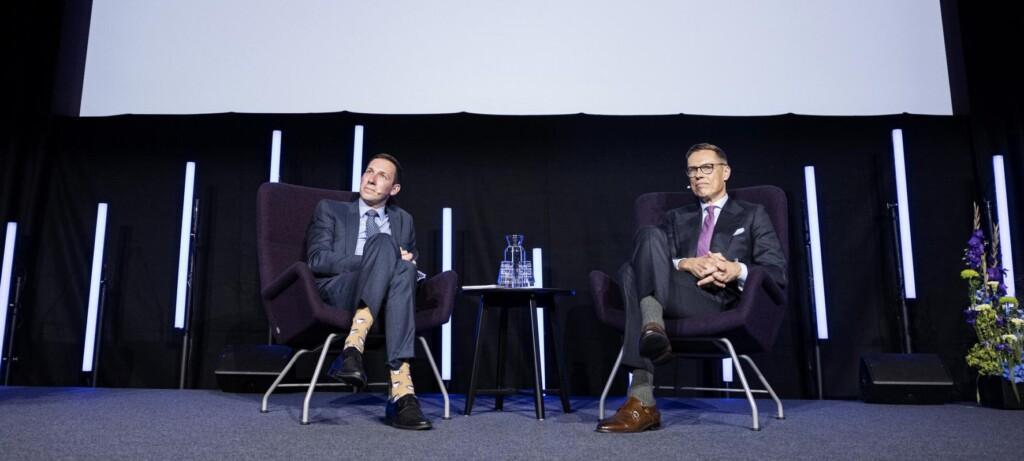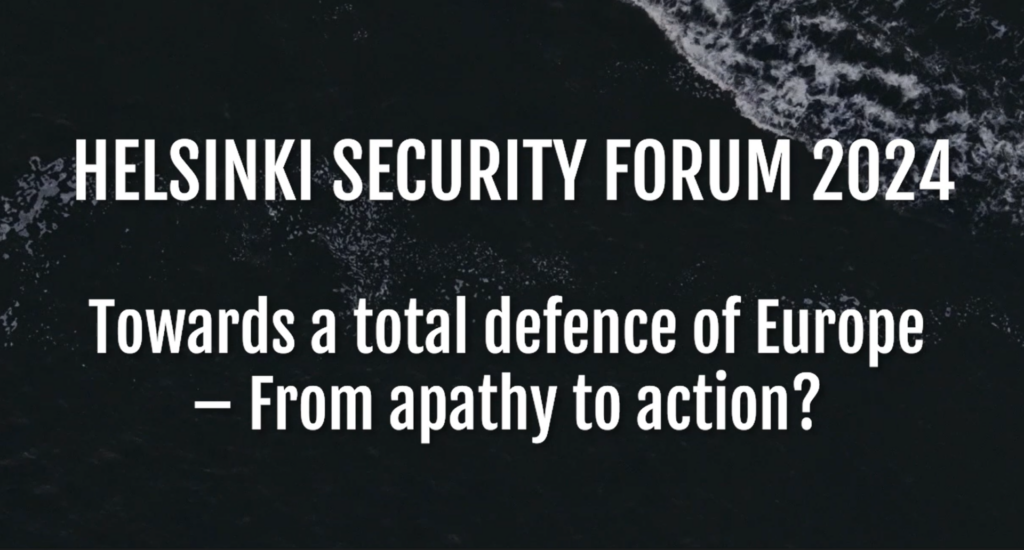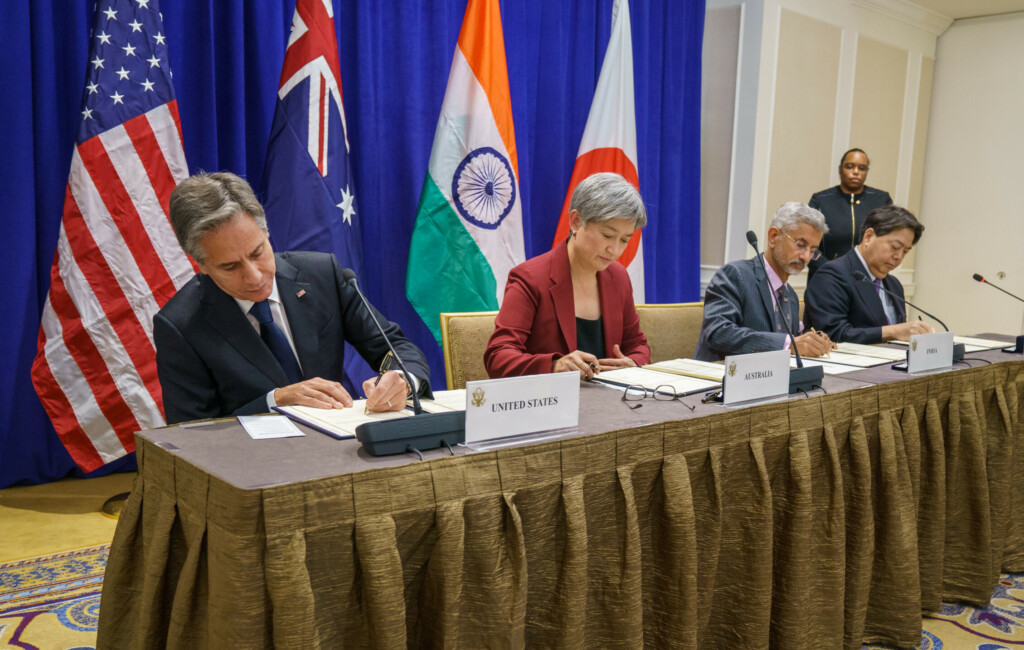Publications

Rejecting Russian Spheres of Influence
For decades, Western officials and spokespersons have repeated the mantra that all states, large and small, have the right to make their own foreign policy choices. To this end, the EU has rejected the very language of spheres of influence in favour of an international order based on common rules rather than the power of the strongest.
However, when it comes to the policy towards Russia, this rejection has been more evident in words than deeds. Since the decisions on EU and NATO eastern enlargement in 2004, the West has been aiming to avoid a direct collision with Moscow in the so-called “shared neighbourhood”.
Since the decisions on EU and NATO eastern enlargement in 2004, the West has been aiming to avoid a direct collision with Moscow in the so-called “shared neighbourhood”.
At the 2008 NATO summit in Bucharest, the prospect of Ukraine and Georgia joining the Alliance was effectively ruled out. Even after Russia attacked Georgia in August of the same year and recognised the independence of breakaway regions Abkhazia and South Ossetia, Russia was designated and treated as a strategic partner of the European Union. The EU’s Eastern Partnership, launched in 2009 with Armenia, Azerbaijan, Belarus, Georgia, Moldova, and Ukraine, was swiftly deprived of its potential transformative character and became a vehicle for technical assistance at best, much to the satisfaction of the Kremlin.
The EU once again demonstrated its unwillingness to clash with Moscow in January 2014 when it was brokering an agreement which, if implemented, would keep Ukraine’s pro-Russian President Viktor Yanukovych in power until a new election – despite the popular pressure for his resignation. Although the West did introduce some sanctions against Russia after its annexation of Crimea a few months later, the Kremlin had little reason to worry as long as Germany continued to go forward with the construction of the Nord Stream 2 gas pipeline. In February 2015, the Minsk 2 agreement rewarded Russia’s military escalation in Eastern Ukraine. Neither the EU nor the US were willing to confront Russia over Belarus, as demonstrated by their lukewarm reaction to the violent crushing of protests against the fraudulent election of 2020. As for Central Asia, debates in the West focused on whether Turkey or China could challenge Russia’s influence in the region, which showed that there was little recognition of the agency of those states and societies in determining their foreign policy orientation.
All in all, while seeking a workable approach with an increasingly assertive Moscow, the West was making concessions at the expense of countries willing to come closer to the West.
All in all, while seeking a workable approach with an increasingly assertive Moscow, the West was making concessions at the expense of countries willing to come closer to the West. What was achieved by the EU and the US in the region, inertially called the Former Soviet Union (FSU), was more to the credit of those segments of the respective societies that disagreed with this approach. In Ukraine, the 2014 Revolution of Dignity and the ensuing national mobilisation in defence of the country led to the formation of the pro-NATO majority and an aspiration for the country’s full integration into the West. In Georgia, public sentiment slowed down the authoritarian turn of the country’s leadership and its rapprochement with Russia. In Moldova, Maia Sandu won the 2020 presidential campaign, running on an explicitly pro-EU platform. In Armenia, Prime Minister Nikol Pashinyan has been seeking to complement the country’s close relations with Russia with enhanced ties with the West, as demonstrated by the entry into force of the EU-Armenia Comprehensive and Enhanced Partnership Agreement in 2021. Meanwhile, Kazakhstan has consistently been trying to strengthen cooperation with the West and thus balance the relationship with Russia.
Of course, not all political contestation in the region stems from geopolitical orientations. Despite a strong pro-European sentiment in Belarusian society, the massive wave of protests in 2020 was not about going West, even though one reason for that was precisely people’s disappointment with the much-publicised prior engagement between the Lukashenka regime and the West and the lack of trust in the willingness of the latter to intervene on behalf of the protesters. In turn, in Central Asia, political crises are best explained by intraelite quarreling and public frustration with corruption rather than grievances about the direction of foreign policy. However, this is no excuse for the passive and conflict-averse regional approach taken by the West until recently.
Only the Russian aggression against Ukraine in 2022 seems to have affected this approach and brought about policy shifts, the most notable of which was the granting of EU candidate status to Ukraine and Moldova in June 2022. But only if the West stays the course and finally lets go of the very concept of the post-Soviet space, which implies the central role of Russia in the region, and learns to act accordingly, will “a zone of Russia’s privileged interest” become a thing of the past.
GOING FORWARD:
- It is of the utmost importance that the West guarantees continued support for Ukraine. A protracted war should not be a reason to negotiate a deal with Moscow that the people of Ukraine cannot accept.
- Moldova and Ukraine must be supported on their road towards EU membership. However, the conditions for accession should be fully met in order to ensure the strength and cohesion of the Union.
- The respective promises about EU and NATO membership for Moldova and Ukraine must be seen as a firm commitment. Only institutional integration will give these countries the necessary guarantees of both security and transformation.
- Belarus should become a policy priority for the West. The country has strong potential for democratisation and Europeanisation. This implies, among other things, increasing pressure on the Lukashenka regime.
- The West must adopt a transparent policy of carrots and sticks towards all other states in the region. This applies in particular to the states of Central Asia, which should not become channels helping Russia to circumvent Western sanctions.
Arkady Moshes is Programme Director for the Russia, EU’s Eastern Neighbourhood and Eurasia research programme at the Finnish Institute of International Affairs.
Kristiina Silvan is Postdoctoral Fellow in the EU’s Eastern Neighbourhood and Russia research programme at the Finnish Institute of International Affairs.
This article has previously been published as part of the Helsinki Security Forum 2023 report.

HSF 2025 asks ‘The Hour of Europe’: Can the old continent chart a new course for its future?
Helsinki Security Forum 2025 brings experts and decision-makers together to ponder the hard questions and explore Europe’s path forward.

Helsinki Security Forum 2024 addresses the need for European total defence
The third annual Helsinki Security Forum (HSF) will be held on 27–29 September 2024. This year’s conference is titled Towards...

for HSF Blog
Reverberations in the Indo-Pacific of the War in Ukraine
Russia’s war of aggression against Ukraine has had significant ripple effects in Indo-Pacific security dynamics and ongoing great-power competition.
About the author
Arkady Moshes & Kristiina Silvan
Finnish Institute of International Affairs
Arkady Moshes is Programme Director for the Russia, EU’s Eastern Neighbourhood and Eurasia research programme. He is also a member of the Programme on New Approaches to Research and Security in Eurasia (PONARS Eurasia) at George Washington University. Moshes’ areas of expertise include Russian foreign policy, European-Russian relations as well as internal and foreign policy of Ukraine and Belarus. He received his Ph.D in history of international relations from the Russian Academy of Sciences (1992).
Kristiina Silvan is Postdoctoral Fellow in the EU’s Eastern Neighbourhood and Russia research programme at the Finnish Institute of International Affairs. She earned her PhD with Distinction in the discipline of Political History at the University of Helsinki in February 2022. Her PhD dissertation is titled Legacies of the Komsomol: Government-Affiliated Youth Activism in post-Soviet Belarus and Russia.